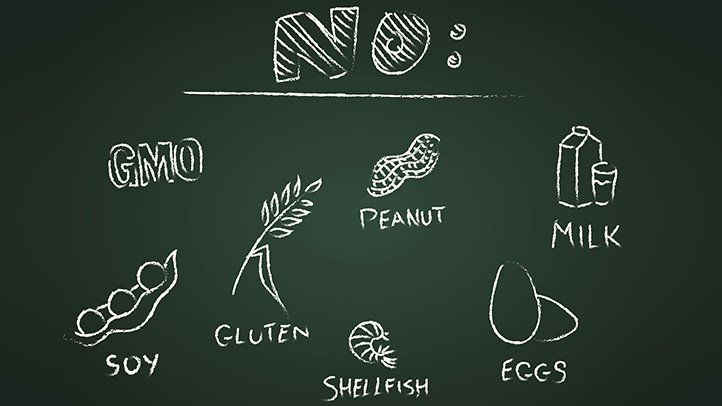Trillions of good-for-you microorganisms reside in your digestive tract, helping you function at your best every day. Called probiotics, these microorganisms outnumber your human cells 10 to 1, and they play a role in helping you digest foods, fend off diseases, and even create vitamins. (1)
They’re closely related to a term you might be familiar with — the microbiome, which refers to a mysterious, microscopic world in your gut that scientists are rigorously studying. Each day, they tie new health effects to this environment of good and bad bacteria, helping fuel what is now a more than $40 billion industry. (2)
Scientists’ fascination with the microbiome is jump-starting an even newer scientific field called pharmabiotics, which refers to the science of using biologically active materials to influence human health. (3)
Although probiotics may seem like a relatively new area of nutrition, scientists discovered them in the early 1900s. Elie Metchnikoff, a researcher whom many consider the “father of probiotics,” observed health benefits from the repeated ingestion of lactic acid-producing bacteria. Since then, there have been more than 20,000 studies in the area of probiotics and their health implications, according to an article published in June 2016 in the journal Microbes and Infection. (4)
Probiotics Benefits: How Do Scientists Think These Microorganisms Help the Body?
This living “for life” nutrient is the foundation of our health. A healthy microbiome may help in preventing and treating diseases in the areas of digestive health, certain types of cancer, oral disease, food allergies, and eczema. (5)
But first, know that probiotic supplements may affect everyone differently, and for older people in particular, their touted benefits are unproven. (6) In fact, the research on how beneficial probiotics are varies depending on the disease in question.
Probiotics May Improve Digestive Health
Using probiotics may help reduce diarrhea caused by things like antibiotic use, cancer therapy, and hospital infections. Bacteria strains of Streptococcus and Lactobacillus can help, but doctors also use yeast strains, such as various Saccharomyces boulardii, to help prevent diarrhea, according to a paper published in March 2016 in the International Journal of Current Microbiology and Applied Sciences. (7)
If dairy gives you bad gas, you may have lactose intolerance, which is caused by a deficiency in the enzyme lactase. The good news is that probiotics seem to help with lactose digestion. Studies show that the probiotic used to make yogurt (Lactobacillus delbrueckii and Streptococcus thermophilus) release lactase, which takes over the body’s usual responsibility of digesting lactose. (8)
If your gassiness isn’t due to lactose intolerance or associated with recurrent diarrhea from any of the aforementioned reasons, you may have a condition called irritable bowel syndrome (IBS). IBS is a default diagnosis that is used for unexplained digestive symptoms, such as gas, bloating, abdominal pain, diarrhea, and constipation. Some studies suggest probiotics can help relieve symptoms of IBS.


What’s the Difference Between IBS and IBD?
Don’t confuse IBS with a more serious digestive-tract disease called inflammatory bowel disease (IBD). IBD is an autoimmune disease categorized by chronic inflammation.
Crohn’s disease (CD), ulcerative colitis (UC), and indeterminate colitis (IC) are three types of IBD. Clinical trials suggest probiotics may be a promising therapy for UC. Unfortunately, CD and IC do not show the same therapeutic effect. (9,10)
Probiotics May Play a Role in Immunity and Cancer Prevention
Much of the research on the potential effects of probiotics on cancer and immunity has involved lab studies on lactic acid bacteria (LAB). In these studies, this probiotic seems to decrease the enzyme activity of other bacteria that produce cancer cells, potentially reducing the risk of liver, colon, and bladder cancer. (11)
Probiotics and prebiotics seem to influence an entire immunological network in the body, and tend to have the biggest potential early in life. (12) Taking probiotics while pregnant, for example, may reduce your child’s risk of allergy symptoms, such as skin rashes, nasal congestion, and watery eyes. It may also decrease incidence of chronic digestive disorders like celiac disease, Crohn’s disease and ulcerative colitis, according to a review published in January 2015 in the journal Pediatric Research. (13)
Probiotics Are Associated With Improved Oral Health
Probiotics benefit the digestive tract from the beginning to end. It all begins in your mouth, where harmful bacteria, also known as plaque, may be decreased by — yes, you guessed it — probiotics. In a randomized controlled trial published in January 2013 in the journal Dentistry & Medical Research, researchers divided 90 children ages 13 to 15 into three groups: one that received a mouth disinfectant, one that received a probiotic mouth rinse, and one that received a placebo. (14) The probiotic consisted of Lactobacillus acidophilus, Lactobacillus rhamnosus, Bifidobacterium longum, and Saccharomyces boulardii. After two months, the group that received the probiotic had the greatest reductions in plaque volume and gingivitis risk.
Probiotics may also help prevent cavities, as a buildup of acid from bacteria like streptococci on the surface of the tooth causes them. Probiotics help protect the teeth by lowering their pH, according to a paper published in 2015 in the Finnish journal Annales Universitatis Turkuensis. (15) A lower pH is protective, while a higher pH, meaning an acidic environment, is one in which cavities are more likely to form.
Probiotics Could Help Prevent Food Allergies
Probiotics may also help prevent food allergies, though more research is needed. For example, a review published in October 2015 in the Journal of Allergy and Clinical Immunology suggested probiotics may help prevent eczema, which is a risk factor for food allergies, in children when administered to pregnant or breastfeeding mothers. (16) Important to note, though, is infant eczema doesn’t always signal a food allergy, and could simply be caused by dry skin or a seasonal allergy.


How Do Food Allergies Affect Digestion?
Fermented dairy products are high in probiotics, but also one of the major food allergens, meaning some of the very foods that may help prevent this food allergy are off limits for those who already have the condition. The good news is if you have a food allergy, you can choose probiotic sources that are dairy-free or even nondairy fermented foods. Examples of nondairy probiotics include kimchi, kombucha, sauerkraut, kefir (when made with nondairy milk), and tempeh.
Weight Loss May Be Easier With the Help of Probiotics
Another growing area of research on probiotics is weight loss.
For example, a study published in October 2017 in the journal Cell & Bioscience suggested that lowering inflammation helps combat insulin resistance, the hallmark of type 2 diabetes, and fat accumulation. (17)
Also, a systematic review and meta-analysis published in March 2018 in the journal Genes found that using a probiotic was associated with decreases in body mass index (BMI), weight, and fat mass with a probiotic dose of at least 30 billion for greater than 12 weeks. (18)
The authors stated that the amounts, type, and duration of the probiotics require further study, though, because these measures weren’t consistent across every study. Probiotics and prebiotics showed a significant decrease while synbiotics did not, more due to the lack of studies, and the large differences between those studies negatively impacted the analysis. Yet the authors concluded that these dietary agents are essential tools in treating obesity. More on how these differ later.
What Are the Best Food Sources of Probiotics?
Certain foods naturally contain healthy bacteria by a process called lactic acid fermentation. This occurs when bacteria converts sugar or other carbohydrates to lactic acid, which then increases the bacterial count. Beer and sourdough bread are also fermented, but these foods do not contain live, beneficial bacteria that we call probiotics. Foods that contain probiotics include: (19)
- Yogurt
- Kefir
- Fermented cheeses, such as buttermilk cheese and cottage cheese
- Kimchi
- Raw sauerkraut
- Tempeh
- Miso
- Kombucha
- Natto
- Lacto-fermented vegetables, such as pickles
The 411 on Probiotic Supplements and How to Choose a Quality Product
It can be overwhelming when seeing the slew of probiotic supplements that are out on the market. Some things to consider when choosing one that is right for you:
Be choosy. In particular, work with your healthcare team to identify and buy the probiotic that best address your health concern. For instance, Lactobacillus rhamnosus GG can help with diarrhea, while a combination of Bifidobacteria and Lactobacillus would be helpful for IBS. (20)
Read the label. Make sure any probiotic you choose is free of any ingredients you do not want, such as food allergens. Your healthcare team can help you translate any terms you don’t understand.


5 Fermented Foods That May Help With Diabetes Control
Practice caution. Understand that the U.S. Food and Drug Administration (FDA) does not review dietary supplement products for safety and effectiveness before they’re marketed. Therefore, consider following the FDA’s tips for dietary supplement users.
For those with a disease or condition that has weakened the immune system, consult your doctor before starting a probiotic. Infections could occur from taking probiotics when you’re already sick. (19)
Dosing Recommendations for Taking Probiotics
Dosing recommendations vary depending on whether you’re taking probiotics for general health or if you are taking them to help with a specific health issue. For general health, one to two million colony-forming units (CFUs) is a reasonable dosage. Most studies for the treatment of IBS or antibiotic-induced and infectious diarrhea include dosages for children starting at five billion CFUs per day and more than 10 billion CFUs per day for adults. Speak with your healthcare team about a good dosage for your needs, noted an article published in November 2017 in Food and Nutrition. (21)
Answers to Frequently Asked Questions About Probiotics
I don’t like fermented foods. What’s another way to get probiotics?
A diet high in fiber, which is a prebiotic, may promote probiotic growth in the gut. You can also take a probiotic supplement with clearance from your healthcare team.
Is it just as good to take probiotic supplements as it is to eat foods with probiotics?
In general, the body benefits most from consuming probiotics via food, which often also contains beneficial nutrients. But if you’re using probiotics to treat a disease or illness, a supplement that contains a higher number of strains may be more effective, noted a paper published in September 2017 the journal Biochemistry & Pharmacology. (24)
If I take a probiotic supplement, is it best to take it before, during, or after a meal?
You’ll reap the most benefits from probiotics if you take them 30 minutes before a meal or while eating. Also important: taking them with a food or drink that contains some amount of fat, because probiotics are fat soluble, meaning fat helps the body properly absorb them. (25)
Can a person take in too many probiotics?
The short answer is scientists aren’t sure. If eaten in food, the risks of probiotic overdose are low. Yet some strains could potentially overgrow and cause infections, so it’s important that you discuss your specific probiotic supplements with your healthcare team before taking any if you are being treated for a current infection. Bacterial overgrowth is more of a risk if you have an immune system disorder (such as cancer and autoimmune diseases), are a premature infant, or have cardiac valve disease, short bowel syndrome, or central venous catheters, according to an article published in May 2015 in the journal Clinical Infectious Diseases. (26)
What is the best probiotic for your health?
Simply put, researchers haven’t identified one yet. Most of the studies surround bacterial strains of Lactobacillus and Bifidobacterium and the yeast strain Saccharomyces boulardii. It’s also likely that various strains are best for different conditions. (1)
Is it better to choose probiotic supplements that are refrigerated?
Not necessarily. Most probiotics are sensitive to heat and moisture. Yet many of the supplements that are in pill form are freeze-dried so they do not require refrigeration. Supplement companies have to be careful to avoid high heat during processing and shipping to avoid killing the bacterial. When taking the supplement, avoid taking it with extra-hot foods or beverages for optimal effectiveness. (27)
Should I always take probiotics when on an antibiotic?
Nearly all antibiotics have the potential to cause antibiotic-associated diarrhea, but especially: (28)
- Penicillins, such as Augmentin (amoxicillin and clavulanate potassium), Zosyn (piperacillin and tazobactam), and Amoxil (amoxicillin)
- Cephalosporins, such as Keflex, Ancef, and Rocephin
Probiotics may help reduce diarrhea by replenishing the good bacteria killed by the antibiotic. (7)


Editorial Sources and Fact-Checking
References
- Probiotics: In Depth. National Center for Complementary and Integrative Health. July 31, 2018.
- Probiotics Pros and Cons. Berkeley Wellness. September 28, 2018.
- The Overlooked Role of Probiotics in Human Health. Life Extension. April 2012.
- Cavaillon JM, Legout S. Centenary of the Death of Elie Metchnikoff: A Visionary and an Outstanding Team Leader. Microbes and Infection. June 2016.
- Thomas CM, Versalovic J. Probiotics-Host Communication: Modulation of Signaling Pathways in the Intestine. Gut Microbes. May–June 2010.
- Should You Take Probiotics? Harvard Health Publishing. April 2015.
- Faujdar SS, Mehrishi P, Bishnoi S, Sharma A. Role of Probiotics in Human Health and Disease: An Update. International Journal of Current Microbiology and Applied Sciences. March 2016.
- Kolars JC, Levitt MD, Aouji M, Savaiano DA. Yogurt: An Autodigesting Source of Lactose. The New England Journal of Medicine. January 1984.
- Coqueiro AY, Raizel R, Bonvini A, et al. Probiotics for Inflammatory Bowel Diseases: A Promisin Adjuvant Treatment. International Journal of Food Sciences and Nutrition. May 2018.
- Hedin C, Whelan K, Lindsay JO. Evidence for the Use of Probiotics and Prebiotics in Inflammatory Bowel Disease: A Review of Clinical Trials. Proceedings of the Nutrition Society. August 2007.
- Kumar M, Kumar A, Nagpal R, et al. Cancer-Preventing Attributes of Probiotics: An Update. International Journal of Food Sciences and Nutrition. February 2010.
- Frei R, Akdis M, O’Mahony L. Prebiotics, Probiotics, and the Immune System: Experimental Data and Clinical Evidence. Swiss Institute of Allergy and Asthma Research. 2015.
- Romano-Keeler J, Weitkamp JH. Maternal Influences on Fetal Microbial Colonization and Immune Development. Pediatric Research. January 2015.
- Thakkar P, Prashant, M, Kumar P, et al. Effect of Probiotic Mouthrinse on Dental Plaque Accumulation: A Randomized Controlled Trial. Dentistry and Medical Research. January 2013.
- Toivainen A. Probiotics and Oral Health: In Vitro and Clinical Studies. Annales Universitatis Turkuensis. 2015.
- Cuello-Garcia CA, Brozek JL, Fiocchi A, et al. Probiotics for the Prevention of Allergy: A Systematic Review and Meta-Analysis of Randomized Controlled Trials. American Academy of Allergy, Asthma & Immunology. October 2015.
- He M, Bingyin S. Gut Microbiota as a Potential Target of Metabolic Syndrome: The Role of Probiotics and Prebiotics. Cell & Bioscience. October 2017.
- John GK, Wang L, Nanavati J et al. Dietary Alteration of the Gut Microbiome and Its Impact on Weight and Fat Mass: A Systemic Review and Meta-Analysis. Genes. March 2018.
- Probiotics. Cleveland Clinic. March 21, 2019.
- Probiotics: In Depth. NIH Center for Complementary and Integrative Health. October 2016.
- What to Look for When Selecting the Right Probiotic. Food and Nutrition. November 22, 2017.
- Kligler B, Coherrson A, Probiotics. American Family Physician. November 1, 2008.
- Schrezenmeir J, de Vrese M. Probiotics, Prebiotics, and Synbiotics – Approaching a Definition. The American Journal of Clinical Nutrition. February 2001.
- Meybodi MN, Mortazavian AM. Probiotic Supplements and Food Products: A Comparative Approach. Biochemistry & Pharmacology. September 2017.
- Tompkins T, Mainville I, Arcand Y. The Impact of Meals on a Probiotic During Transit Through a Model of the Human Upper Gastrointestinal Tract. Beneficial Microbes. December 6, 2011.
- Doron S, Snydman DR. Risk and Safety of Probiotics. Clinical Infectious Diseases. May 2015.
- Do Probiotic Pills Require Refrigeration? ConsumerLab. August 10, 2017.
- Antibiotic-Associated Diarrhea. Mayo Clinic. May 15, 2019.

































